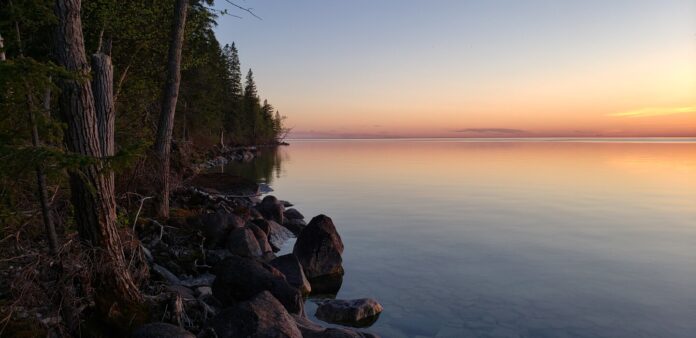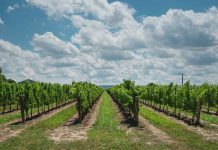Brad Dokken
GRAND FORKS – In early September,
I wrote a story in which Robert Warren, who teaches in UND’s Marketing Department and has dual Canada-U.S. citizenship,
predicted Canada would get rid of its controversial ArriveCan app when its current border-crossing measures expired Sept. 30.
The digital application allows travelers to submit proof of COVID-19 vaccination and other mandatory travel information to the Canada Border Services Agency within 72 hours of crossing the border.
ArriveCan, which many have found clunky to navigate, has been widely criticized as a detriment to cross-border travel.
“The need for the ArriveCan app, at least at land border crossings, seems to have gone away,” Warren told the Herald. “My thinking is that they have to get rid of it.”
Warren was less confident that Canada would drop its requirement that foreign travelers be fully vaccinated to enter the country, but that’s exactly what happened Monday, when Prime Minister Justin Trudeau confirmed the country was dropping all of its COVID-19 travel restrictions – specifically vaccination, random testing at the border and ArriveCan requirements – effective Saturday, Oct. 1.
Rumblings that Canada would drop its border crossing measures had been circulating for more than a week, but Monday’s announcement made it official.
Like Warren, I didn’t expect Canada would drop its COVID-19 vaccination requirement this soon, but here we are. Getting vaccinated was never an issue in my world, but many people – some friends included – didn’t share that view. The topic became the elephant in the room on more than one occasion.
No more.
While too late to benefit most of this year’s tourism season, Monday’s news was welcomed by Canada’s hunting and fishing lodge industry, which relies almost exclusively on American visitors.
Said Gerry Cariou, executive director of the Sunset Country Travel Association in Kenora, Ontario: “It’s about time.”
It’s like the “Berlin Wall of COVID” falling, he said.
“It allows us to be free to operate again without restrictions that are damaging, that were damaging and will inflict, possibly, long-term damage on certain businesses,” Cariou said.
“We have to move forward, despite the damage that’s been done.”
Gerry Cariou, executive director of Ontario Sunset Country Travel Association in Kenora, Ontario, talks about tourism in the province Friday, March 4, 2022, at the Red River Valley Sportsmen’s Show in Fargo.
Brad Dokken / Grand Forks Herald
The border closure and the restrictions that were put in place when nonessential travelers again were allowed to enter Canada on Aug. 9, 2021, have been “extremely challenging” for tourism, Cariou says.
The travel group represents nearly 200 resorts and fishing lodges in northwestern Ontario.
“I guess we as an association would tip our hats to lodges and others related to tourism businesses in northwestern Ontario,” Cariou said. “Our relief is really for them – and for the people who couldn’t come up.
“We’ve been waiting 2½ years now for this day.”
Tourism in northwestern Ontario improved from 2021, but July numbers were still down 48% from pre-pandemic levels, Cariou says. In that context, it was still a rough year, he says.
“Since the COVID thing hit, I guess it was the best thing but not what we wanted,” he said. “Really, 48% down is not a good year.”
Many lodges now are closed or soon will close for the season, but there’s still an opportunity for hunters and fall muskie anglers who resisted vaccination requirements to now cross the border.
Unvaccinated anglers also likely will return to popular ice fishing destinations such as Lake Winnipeg in Manitoba, known for its big “greenback” walleyes, or any number of popular lake trout fisheries in northwestern Ontario.
“We want to get past the last 2½ years and move forward,” Cariou said. “The lodges can now execute their business plans. Customers are now free to travel from the United States to Canada pre-COVID rules, so we’re going to try to work really hard to regain what was happening prior to COVID-19.
“It’s a relief, I guess. But boy – you know – why didn’t they do it three months ago?” Cariou added. “Why one more season (of restrictions)? That’s my personal view, and you’re welcome to publish that. What’s the difference (between) now and three months ago?”
The focus – and the challenge – for tourism groups across Canada now is to remind potential visitors about the country’s hunting and fishing opportunities and the beauty of its natural landscapes.
“What we want to do is create a positive message around what’s happening,” Cariou said. “Invite our U.S. guests and friends to come back to Canada and enjoy the outdoors at a level that they just aren’t likely to see in most places in the United States.”











